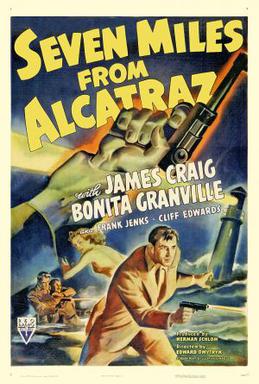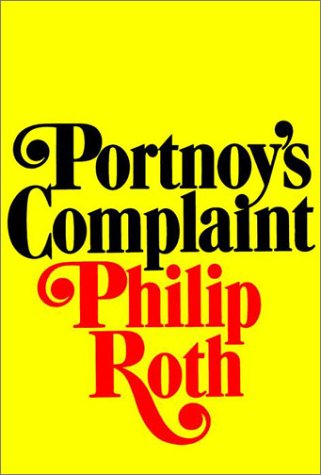*****Where Have All The Flowers Gone- With Legendary Folk-Singer Pete Seeger In Mind
A while back, a few months ago now I think I mentioned in a sketch about how I came to learn about the music of Woody Guthrie I noted that it was hard to pin just exactly when I first heard his music since it pre-dated my coming to the folk minute of the 1960s where the name Woody Guthrie had been imprinted on lots of work by the then “new breed” protest/social commentary troubadour folk singers like Bob Dylan (who actually spent time in Woody’s hospital room with him when he first came East from Hibbing out of Dinktown in Minneapolis and wrote an early paean called Song To Woody on his first or second album), Ramblin’ Jack Elliott (who made a very nice career out of being a true Woody acolyte and had expected Dylan who had subsequently moved on, moved very far on to more lyrical and electrified work to do the same), and Stubby Tatum, probably the truest acolyte since he was instrumental in putting a lot of Woody’s unpublished poems and art work out for public inspection and specialized in Woody songs, first around Harvard Square and then wherever he could get a gig, the going was tough which to say the least most of these efforts were not among the most well know or well thought out of Woody’s works, reflected that long curve decline in the genetically-based illnesses that laid him low by the end.
After some thought, and some prodding by an old-time classmate who had stayed in town and who had been in the class with me, I pinpointed the first time I heard a Woody song to a seventh grade music class, Mr. Dasher’s class whom we innocently then called "Dasher the Flasher" just for rhyming purposes when being a rhyming simon was the cat's meow and was the subject of many strange rhyme schemes, some not publishable even today, but which also with today’s sensibilities in mind about the young would not play very well and would probably have him up before some board of inquiry just because a bunch of moody, alienated hormonally-crazed seventh graders were into a rhyming fad that lasted until the next fad a few weeks or months later, when he in an effort to have us appreciate various genre of the world music songbook made us learn Woody’s This Land Is Your Land.
Little did we know until a few years later when some former student confronted him about why we were made to learn all those silly songs he made us memorize and he told that student that he had done so in order to, fruitlessly as it turned out, break us from our undying devotion to rock and roll, you know, Elvis, Chuck, Jerry Lee, Wanda, Brenda, Bo, Buddy, the Big Bopper and every single doo wop group, male or female we could get our hands on at Chip's Record Shop downtown or on the jukebox at the Dew Drop Diner where we corralled ourselves on many an after school afternoon. If anybody wants to create a board of inquiry over that particular Mister Dasher indiscretion complete with a jury of still irate "rock and roll will never die" aficionados you have my support.
After some thought, and some prodding by an old-time classmate who had stayed in town and who had been in the class with me, I pinpointed the first time I heard a Woody song to a seventh grade music class, Mr. Dasher’s class whom we innocently then called "Dasher the Flasher" just for rhyming purposes when being a rhyming simon was the cat's meow and was the subject of many strange rhyme schemes, some not publishable even today, but which also with today’s sensibilities in mind about the young would not play very well and would probably have him up before some board of inquiry just because a bunch of moody, alienated hormonally-crazed seventh graders were into a rhyming fad that lasted until the next fad a few weeks or months later, when he in an effort to have us appreciate various genre of the world music songbook made us learn Woody’s This Land Is Your Land.
Little did we know until a few years later when some former student confronted him about why we were made to learn all those silly songs he made us memorize and he told that student that he had done so in order to, fruitlessly as it turned out, break us from our undying devotion to rock and roll, you know, Elvis, Chuck, Jerry Lee, Wanda, Brenda, Bo, Buddy, the Big Bopper and every single doo wop group, male or female we could get our hands on at Chip's Record Shop downtown or on the jukebox at the Dew Drop Diner where we corralled ourselves on many an after school afternoon. If anybody wants to create a board of inquiry over that particular Mister Dasher indiscretion complete with a jury of still irate "rock and roll will never die" aficionados you have my support.
In thinking about Woody the obvious subsequent question of import is when I first heard the late Pete Seeger sing, a man who acted as the transmission belt between generations, I came up against that same quandary since I know I didn’t associate him with the first time, the first wave of performers, I heard as I connected with the emerging folk minute of the early 1960s. That folk minute start which I do clearly remember the details of got going one Sunday night when tired of the vanilla rock and roll music that was being played in the fall of 1962 on the Boston sell-out rock stations I began flipping the small dial on my transistor radio settling in on this startling gravelly voice which sounded like some old-time mountain man, some old time Jehovah cometh Calvinist avenging angel, singing Come All You Fair And Tender Ladies (who turned out to be folk historian and seminal folk revival figure Dave Von Ronk, who as far as I know later from his politics had no particular religious bent,if any, but who sure sounded like he was heralding the second coming as he walked down from the mountaintop). I listened to a few more songs on what turned out to be a folk music program put on every Sunday evening between seven and nine on WBNC at the request of some college kids in the area who were going crazy for roots music according to the DJ.
After thinking about it for a while I realized that I had heard Pete not in solo performance but when he was with The Weavers and they made a hit out of the old Lead Belly tune, Good Night, Irene (a song that in the true oral tradition has many versions and depending on the pedigree fewer or more verses, Lead Belly’s being comparatively short but all speaking to a low-down guy trying to get back with his sweetie come hell or high water). In those days, in the early 1950s I think, the Weavers were trying to break into the popular music sphere and were proceeding very well on that path until the Cold War night descended upon them and they, or individual members including Pete were tarred with the red scare "reds under every bed" brush.
Still you cannot keep a good man down, a man with a flame-throwing banjo, with folk music DNA in his blood since he was the son of the well-known folk musicologist Charles Seeger who along with father and son Lomaxes did so much to record the old time roots music out on location in the hills and hollows of the South, and with something to say to those who were interested in looking back into the roots of American music before it got commercialized (although now much of that early commercial music makes up the key folk anthology put together by Harry Smith and which every self-respecting folkie treated like the bible-and stole like crazy from like Dylan did with Rabbit Allen's James Alley Blues, I think that).
Pete put a lot of it together, a lot of interests. Got the young interested in going back to the time when old cowboys would sing themselves to sleep around the camp fire out in the prairies, when sweat hard-working black share-croppers and plantation workers down South would get out a Saturday night illegal homemade jug and head to the electricity-less juke joint to chase the blues away, and when the people of the hills and hollows down in Appalachia would Saturday night get out the self-same illegal and homemade jug and run over to Bill Preston’s old seen better days red-painted barn and dance that last dance waltz to that weeping mountain fiddle as the mist rolled in from the damps.
Pete put a lot of it together, a lot of interests. Got the young interested in going back to the time when old cowboys would sing themselves to sleep around the camp fire out in the prairies, when sweat hard-working black share-croppers and plantation workers down South would get out a Saturday night illegal homemade jug and head to the electricity-less juke joint to chase the blues away, and when the people of the hills and hollows down in Appalachia would Saturday night get out the self-same illegal and homemade jug and run over to Bill Preston’s old seen better days red-painted barn and dance that last dance waltz to that weeping mountain fiddle as the mist rolled in from the damps.
Stuff like that, lots of stuff like that to fill out the American songbook. But Pete also put his pen to paper to write some searing contemporary lyrics just like those “new breed” protest folk singers he helped nurture and probably the most famous to come out of that period, asking a very good question then, a question still be asked now if more desperately than even then, Where Have All The Flowers Gone. Now a new generation looks like it too is ready to pick up the torch after the long “night of the long knives” we have faced since those days. The music is there to greet them in their new titanic struggles.



